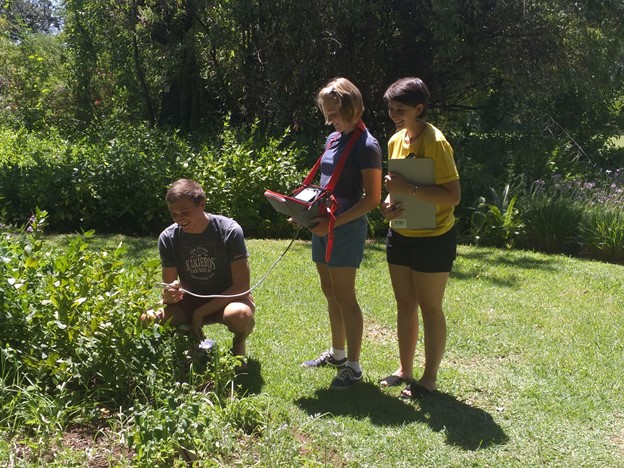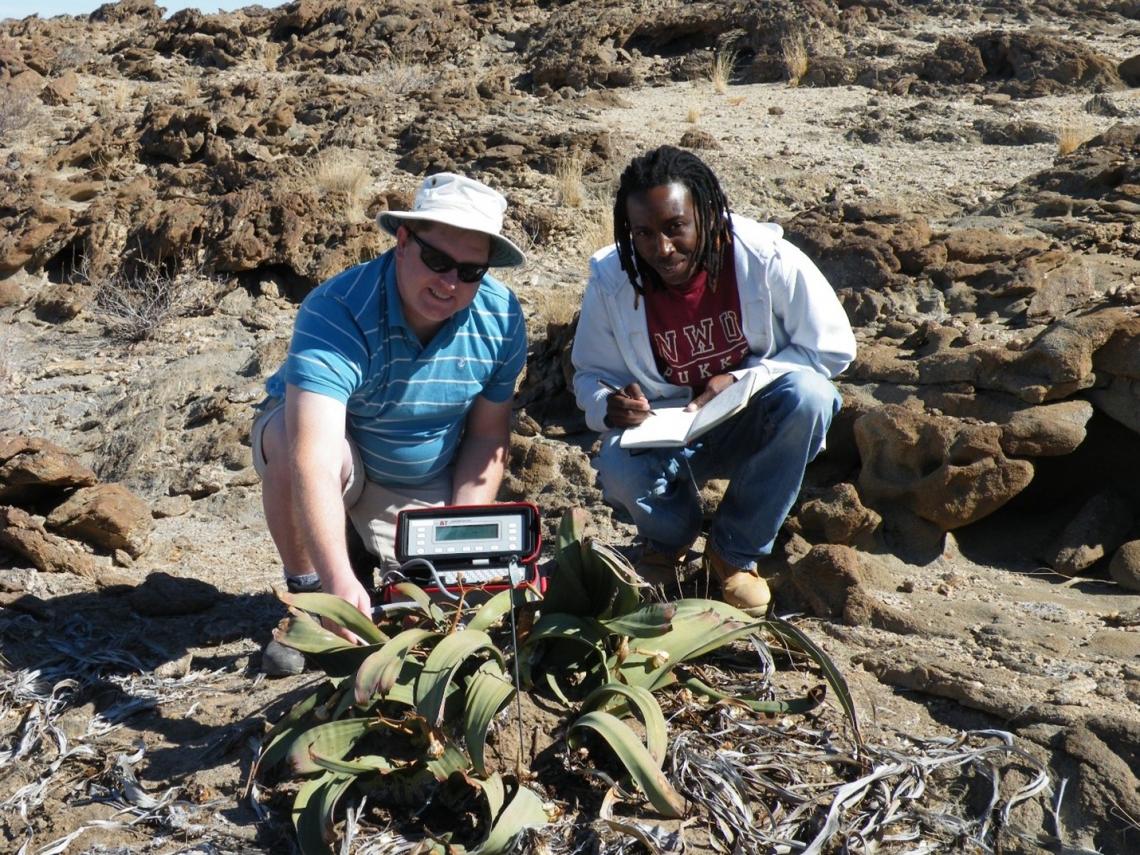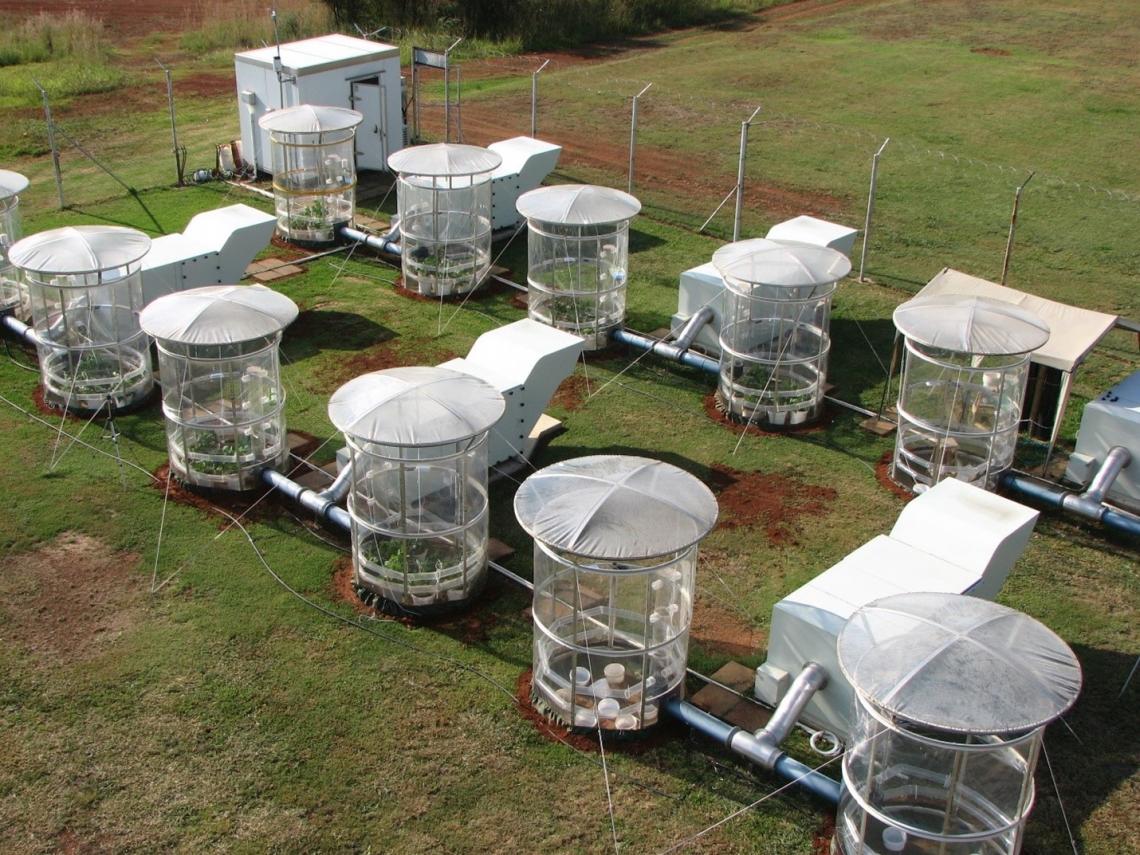Plant physiology and biochemistry research at the NWU is focused on quantifying the impact of elevated carbon dioxide and air pollutants as well as increased water stress on crops. From such studies, it becomes possible to identify alternative crops that can successfully adapt to shifting climate patterns. The introduction of climate-resilient crops will broaden the South African production base and provide much-needed food and nutrient security. Understanding how the process of photosynthesis responds to environmental stress within carefully selected plant species is a vital component for investigations into future agriculture.
Plant exposure to environmental stress induces numerous physiological reactions, which are often traceable in terms of the physiological composition of specific plant types. Among the critical physiological changes are alterations in photosynthesis, and for this reason, photosynthesis is viewed as a universal stress indicator in plants.
The effect of environmental stressors such as air pollution and climate change are studied at the internationally recognised open-top chambers facility on the Potchefstroom campus. The information gained from these studies will aid in the development of stress-tolerant crops that will be ready for cultivation under marginal and harsh environmental conditions. Several such studies have already been done on soybean, maize, amaranth, quinoa and sugarcane.
Research themes:
- Photosynthesis
- Climate change impacts
- New crop development




